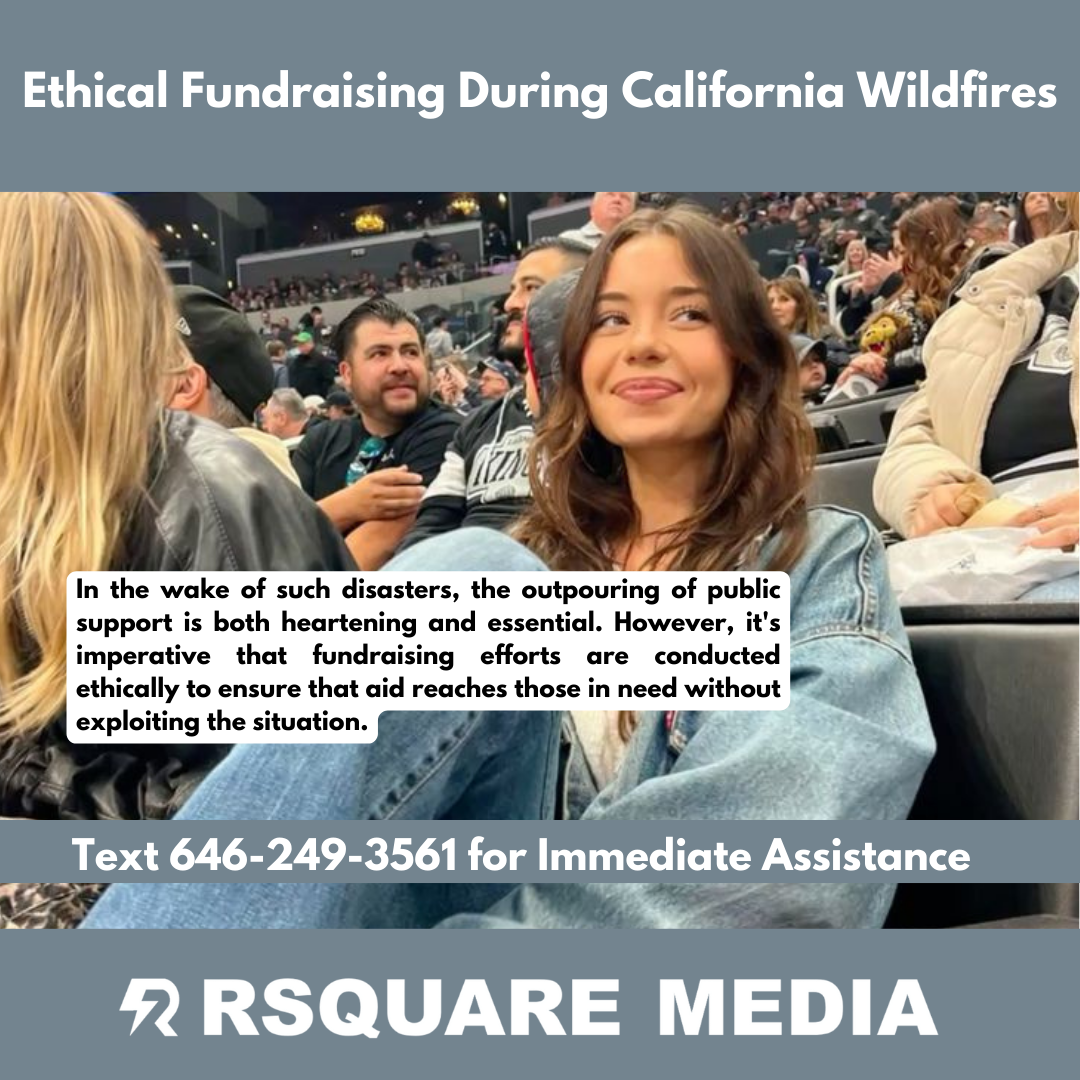The 2025 California wildfires have wrought unprecedented devastation, particularly in Los Angeles County. The Palisades Fire alone has scorched over 21,500 acres, leading to the destruction of thousands of structures and the displacement of over 150,000 residents. The human toll is equally harrowing, with at least 11 confirmed fatalities and countless others suffering from injuries and smoke inhalation.
In the wake of such disasters, the outpouring of public support is both heartening and essential. However, it’s imperative that fundraising efforts are conducted ethically to ensure that aid reaches those in need without exploiting the situation. This article delves into the principles of ethical fundraising during natural disasters, with a focus on the current California wildfires, and provides guidance on how to contribute responsibly.
Understanding Ethical Fundraising
Ethical fundraising is the practice of soliciting and managing donations in a manner that is transparent, accountable, and respectful to both donors and beneficiaries. During natural disasters, the urgency to provide aid can sometimes overshadow ethical considerations, leading to potential pitfalls such as misallocation of funds, donor fatigue, or even fraud.
Key Principles of Ethical Fundraising
- Transparency: Clearly communicate how funds will be used. Donors should have access to information about the allocation of their contributions.
- Accountability: Organizations must be accountable for the funds they receive, ensuring they are used for their intended purposes and providing regular updates to donors.
- Respect for Donors and Beneficiaries: Fundraising appeals should respect the dignity of those affected by the disaster and avoid exploiting their suffering for financial gain.
- Compliance with Legal and Ethical Standards: Adhere to all relevant laws and ethical guidelines governing fundraising activities.
Ethical Guidelines and Resources
Several organizations have established codes of conduct to guide ethical behavior in disaster relief efforts:
- International Federation of Red Cross and Red Crescent Societies (IFRC): Their Code of Conduct emphasizes maintaining high standards of independence, effectiveness, and impact in disaster response.
- U.S. Department of the Interior: Provides guidelines on accepting assistance and fundraising in the workplace related to natural disasters, ensuring compliance with ethical standards.
Avoiding Exploitation in Fundraising
To prevent the exploitation of natural disasters for profit, consider the following:
- Avoid Sensationalism: While it’s important to convey the urgency of the situation, avoid using graphic images or language that sensationalizes the disaster.
- Ensure Consent: When sharing stories or images of those affected, obtain their consent to respect their privacy and dignity.
- Be Honest About Needs: Clearly articulate the specific needs resulting from the disaster and how donations will address them.
Supporting Reputable Organizations
Donors should exercise due diligence to ensure their contributions support legitimate and effective relief efforts. Here are some reputable organizations actively involved in the 2025 California wildfire relief:
American Red Cross
Provides emergency shelter, food, and support to those affected by the wildfires. Donations can be made through their official website.
California Community Foundation’s Wildfire Relief Fund
Offers grants to help those who have lost homes and belongings and supports long-term recovery efforts.
Direct Relief
Provides medical assistance to improve the health and lives of people affected by poverty and emergencies.
GlobalGiving
Connects donors with grassroots projects around the world, including wildfire relief efforts in California.
GoFundMe
Hosts numerous campaigns for individuals and families affected by the wildfires. Ensure to verify the legitimacy of individual campaigns before donating.
The Role of GoFundMe and Crowdfunding Platforms
Crowdfunding platforms like GoFundMe have become popular avenues for raising funds during disasters. While they offer a direct way to support individuals, it’s crucial to:
- Verify Campaign Legitimacy: Ensure that the campaign is authentic and that funds will reach the intended recipients.
- Be Cautious of Scams: Unfortunately, fraudulent campaigns can emerge during disasters. Look for verified campaigns or those endorsed by reputable organizations.
Long-Term Commitment to Recovery
Recovery from natural disasters is a long-term process. While immediate relief is essential, consider supporting organizations that are committed to sustained recovery efforts. The Council of Nonprofits suggests making automatic recurring contributions to support ongoing needs.
Conclusion
Ethical fundraising during natural disasters like the California wildfires is vital to ensure that aid reaches those in need without exploitation. By adhering to principles of transparency, accountability, and respect, and by supporting reputable organizations, we can contribute to relief efforts responsibly and effectively. Remember, the goal is to aid recovery and rebuild lives, not to profit from tragedy.

